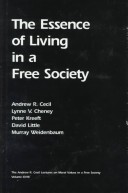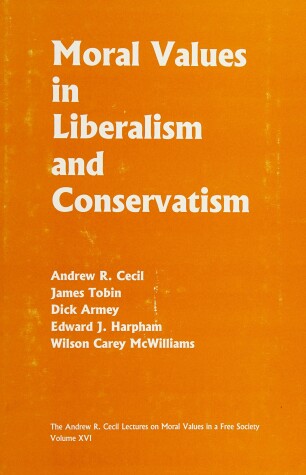The Andew R. Cecil Lectures on Moral Values in a Free Society S.
2 total works
This volume contains the proceedings of the eighteenth annual Lectures on Moral Values in a Free Society held at the University of Texas at Dallas on November 11-13, 1996. The lecture series is designed to provide a forum for discussing vital issues that confront society today, based on an understanding of the system of moral values on which our country was founded and continues to rest.
v. 16
Moral Values in Liberalism and Conservatism
by Andrew R Cecil and W. Lawson Taitte
Published 31 December 1995
"The proper use of government may be essential to provide the environment in which society can flourish. The functions of government are no longer limited to national defense, fiscal and foreign policy, and restraint of antisocial individuals and groups. Everyone in our modern society seems to agree that it is the government's responsibility to preserve the lives of the members of our communities and protect them not only from physical violence but also from natural agents that threaten their health and well-being, such as floods, epidemics, and crippling diseases. Unemployment, the proliferation of slums, and the deterioration of our cities and of the natural environment also call for some form of governmental intervention. "On the other hand, there is indeed a danger of excessive government control. Today we have enough experience of what happens under totalitarian regimes built on the unlimited dominance of the executive authority to recognize the inherent dangers of unchecked power. In these situations, uncritical recourse to the state created economic and political serfdom. Having thus learned the disaster that excessive reliance on central authority can wreak, we are faced with the task of discerning just how much responsibility for the common good we can safely entrust to government. What is the proper role of the government in discharging its responsibilities for the welfare of the society and of the individual without depriving the people of their right to shape their destiny?" --From the introduction by Andrew R. Cecil

